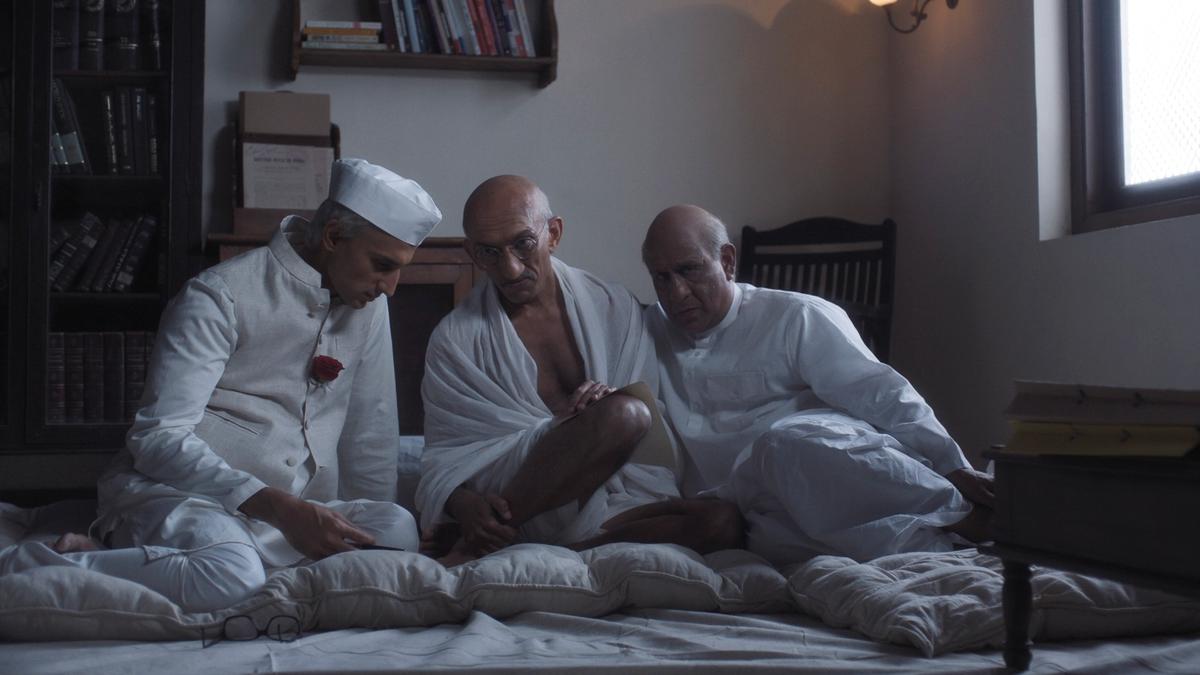
‘Freedom At Midnight’ series review: A pacy, layered account of Partition politics
The Hindu
Freedom At Midnight series review: A fairly faithful adaptation of Dominique Lapierre and Larry Collins’ non-fiction book ‘Freedom At Midnight’, director Nikkhil Advani’s series presents a captivating account of the painful events surrounding India’s Independence whose impact is diminished by its somewhat squinted gaze and some ordinary casting choices
Once a purveyor of Bollywood entertainment, director Nikkhil Advani of late is exploring drama surrounding real, epochal events – life-altering situations where the decisions are not made based on right and wrong, but on the pretext of consequences. A slippery ground to navigate, he got it right in Mumbai Diaries set against 26/11 terror attacks in the metropolis and doesn’t disappoint in Freedom At Midnight either.
A fairly faithful adaptation of Dominique Lapierre and Larry Collins’ non-fiction book, Advani’s ambitious work presents a layered account of the painful events surrounding India’s Independence whose impact is diminished by a selective gaze and some ordinary casting choices.
Addressing history buffs rather than historians, the canvas is sprawling and the events involve personalities whose decisions — and their outcomes — are still being debated. The series manages to put the nuances of competing interests and moral dilemmas in the transfer of power in the context of human lives and clears some of the dust that settled on painful historical events. It was not just about Hindus and Muslims; Sikhs had their future at stake as well. It was not just about the religious divide; Bengal was staring at the partition of cultures. What could not be ceded to the Muslim League at the time of Lord Wavell had to be accepted by the Congress at the time of Mountbatten because of changed electoral arithmetic and charged religious rhetoric.
As it is not a biographical account of one leader’s life, the writers are allowed to humanise the different political personalities, including Mahatma Gandhi, and subject them to scrutiny, without any disrespect. Contentious issues like Gandhi choosing Nehru over Patel and his insistence on offering the PM’s chair to Jinnah have been deftly addressed. A seemingly insignificant line in a flashback sequence where Gandhi addresses Nehru as the son of Motilal (Nehru) provides a sense of their relationship. Similarly, the sequence establishing the fractured relationship between Jinnah and Gandhi puts the past and their eventual political journeys in perspective.
The events are informed by the ingenuity of Gandhi, the pragmatism of Patel, the idealism of Nehru, the self-interest of Jinnah and the procrastination and deceit of the British. Backed by Lappiere and Collins’ screenplay-like writing, the series allows the layers to unravel in a pacy, engaging fashion.
The long form and the somewhat neutral gaze of the authors of the source material allow Advani to map the intricacies of human drama and personality clashes. The scene where Gandhi talks to the Mountabattens about his stolen watch gives goosebumps as the old man hasn’t just lost a device but his article of faith has been stolen. The sartorial choices of the last viceroy and his unmistakable love for pageantry provide an insight into the last days of Colonial rule when, ironically, the Labour Party government was in power in England.
Creative liberty is taken to create a scene where Gandhi crosses a rivulet after a Muslim mob breaks the bridge between Muslim and Hindu neighbourhoods after communal clashes in Noakhali. The scene captures not only the fractured relations between the two communities but also the moral power of the Mahatma in times when hate was the ruling emotion. However, the role of the Rashtriya Swayamsevak Sangh (RSS) and the Hindu Mahasabha in stoking the Muslim separatist sentiment is kept out until the very end of the first season. For a large part, the cinematic gaze gives the impression that a disproportionately large number of Muslims were on the streets to demand a separate State forcing the Congress to yield.





















 Run 3 Space | Play Space Running Game
Run 3 Space | Play Space Running Game Traffic Jam 3D | Online Racing Game
Traffic Jam 3D | Online Racing Game Duck Hunt | Play Old Classic Game
Duck Hunt | Play Old Classic Game











